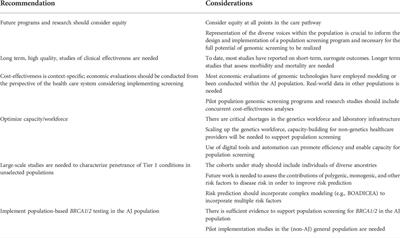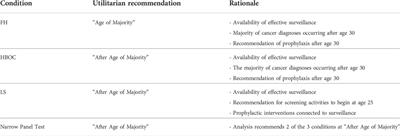POLICY AND PRACTICE REVIEWS
Published on 24 Oct 2022
From the patient to the population: Use of genomics for population screening

doi 10.3389/fgene.2022.893832
- 3,553 views
- 13 citations
27k
Total downloads
123k
Total views and downloads
POLICY AND PRACTICE REVIEWS
Published on 24 Oct 2022

EDITORIAL
Published on 24 Oct 2022
METHODS
Published on 14 Oct 2022

MINI REVIEW
Published on 04 Oct 2022

REVIEW
Published on 01 Sep 2022

ORIGINAL RESEARCH
Published on 11 Aug 2022

MINI REVIEW
Published on 08 Aug 2022

REVIEW
Published on 25 Jul 2022

BRIEF RESEARCH REPORT
Published on 22 Jul 2022

BRIEF RESEARCH REPORT
Published on 22 Jul 2022

ORIGINAL RESEARCH
Published on 18 Jul 2022

PERSPECTIVE
Published on 04 Jul 2022